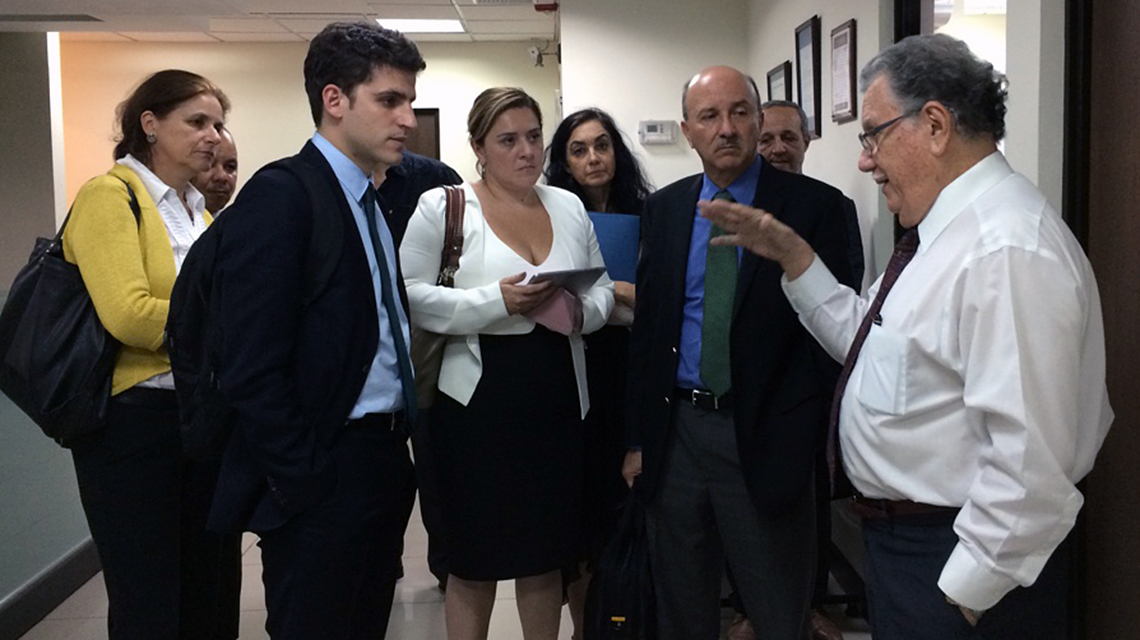El Salvador has strengthened its road map to address priorities and maximize investments in cancer control as a result of a National Strategic Prioritization Workshop on Cancer Control, co-convened by the Ministries of Health and Foreign Affairs in San Salvador from 19 to 21 July 2016.
Opening the event, Carlos Castaneda, Deputy Foreign Minister, expressed hope that "enhanced coordination of our national efforts, supported by increased and targeted strategic and technical support by our international partners, will enable us to achieve our common goal: better health for our people".
The strategic prioritization workshop brought together a broad range of stakeholders from various national institutions, civil society and private sector and was supported by representatives of the International Atomic Energy Agency (IAEA), the International Agency for Research on Cancer (IARC), the World Health Organization (WHO)/Pan American Health Organization (PAHO), the United Nations Population Fund (UNFPA), the World Bank and cancer control experts from the region. The participants worked closely together to identify and prioritize evidence-based, effective and sustainable interventions and technical assistance needed to support the national cancer control programme.
Dr Julio Robles Ticas, Deputy Minister of Health, stressed the importance of prioritization in national cancer control planning. "We have built on the recommendations of the imPACT mission conducted in April 2015 and incorporated them into the implementation plan of the National Policy for Cancer Prevention and Control", he said.
El Salvador's Ministry of Health has identified three key areas for intensified cancer control efforts, the creation of a population-based cancer registry, the development of early detection strategies for common cancers such as cervical, breast and stomach cancers, and the improvement d education and human resource development for cancer care. These priorities are reflected in the national policy, endorsed by the government in 2015.
Speaking for IAEA/PACT, Diogo de Sousa Neves outlined the importance of multiple partners and agencies coming together to support the Government's efforts. "This initiative is crucial to enhance coordination of technical cooperation and to attract much needed resources to support priority needs in the fight against cancer in El Salvador".
The strategic prioritization workshop was held within the framework of a new joint initiative of the IAEA, WHO and IARC aimed at creating synergies and leveraging joint expertise and resources.
